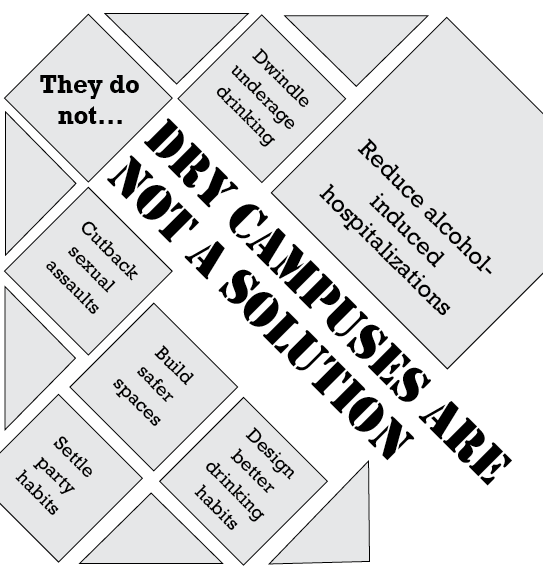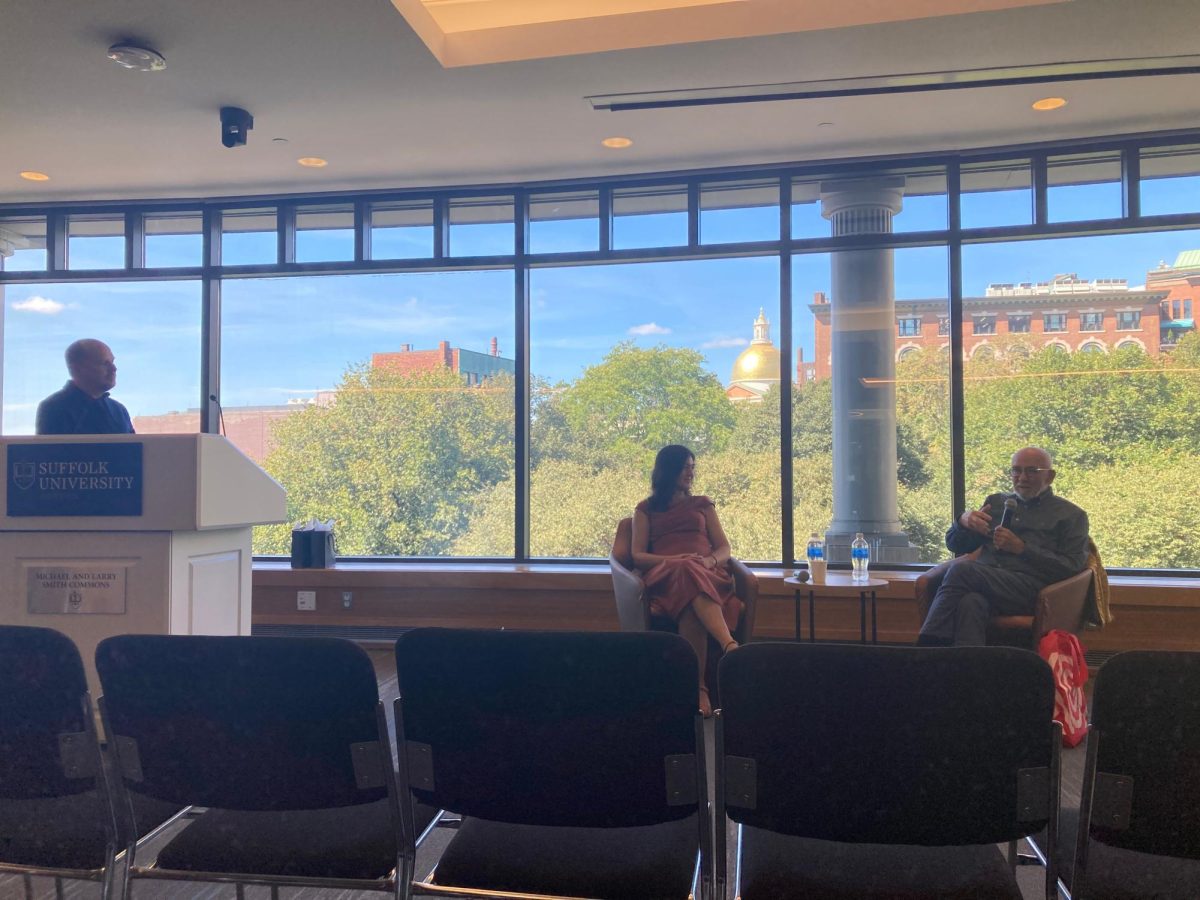
Most college students impatiently wait for the day they turn 21 and can legally drink alcohol in the United States. But even before that day, underage young adults will find ways to consume alcohol behind closed doors from dorms to dingy apartments.
Suffolk University is considered a “dry campus,” meaning that no alcohol is permitted on campus or in dorms, no matter the age of the student, according to the University’s Student Handbook. The goal of this policy is to discourage underage drinking, especially since underage students are normally the ones who live in the dorms.
This policy seems out-of-date and ineffective to combat illegal intoxication. Just because there is a rule in place, does not mean that students will not find a way to break it. This also allows students to drink irresponsibly, leading to alcohol poisoning or worse because there is little supervision at an age where many people don’t know their limit.
Most of our lives, there are advertisements, commercials and stores everywhere that promote the consumption of alcohol. The media and film romanticize the effects, alluding that drinking is part of having fun. So, it seems like no surprise that even people who are underage seek alcohol.
A dry campus puts the idea in students heads that drinking is considered negative, even though their whole life, they’ve been shown otherwise. Something negative about alcohol would be if it is abused or not properly consumed, which happens to a lot of young adults. If a university still wants to be a dry campus, it would be helpful to include alcohol education.
Moreover, its not just college students who are prone to drink. For example, when prohibition was in effect in 1920, people still found ways to drink alcohol, even though it was illegal. This goes to show how banning, not just alcohol, but anything for that matter, is a waste of time and can have greater repercussions than educating others about the subject.
Instead of limiting access and spaces where underage drinking can happen, there should be more done to combat the promotion of alcohol consumption. The university should illicit more conversations around the effects of being intoxicated and the dangers of too much alcohol in the blood stream. Precautions should be taken instead of punishment after the fact.
On many dry campuses, if being caught with alcohol is punishable, students are less apt to go to university police or resident assistants for help. This could mean a life or death situation, in which a student’s safety is at risk and the university could be to blame. A life is more important than a rule.
This also closes the conversation surrounding alcohol and while most students turn 21 during college, they may not know too much about it, which leads to mistakes being made in the consumption of alcohol. And maybe next time, even if they aren’t on campus, they will still be afraid to get help. Isn’t it the university’s priority to keep their students safe and teach them?
Education can go a long way toward preventing alcohol-related injuries and hospitalizations, instead of making it prohibited. If students know they cannot have something, it can make them want it more, which can lead to bad decisions and more problems will occur involving alcohol.
When entering Suffolk, all freshmen are required to take a small online course in alcohol education, which is a step in the right direction and all universities should follow suit.
However, there should be more comprehensive education on alcohol and its effects. This information should span the course of each year of college so students are reminded to drink responsibly and take care of themselves, and each other.
Overall, education is a key component to combating the illegal consumption of alcohol and drinking responsibly. Let’s start being more upfront and honest about these every day issues instead pushing it under the rug and hoping it will go away.








